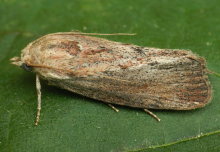

Colistin ban in India
Indian Colistin ban in animal welfare major step in fight against AMR
Welcome policy changes as India becomes one of the early countries to ban the use of Colistin in animal industry



Indian Colistin ban in animal welfare major step in fight against AMR
Welcome policy changes as India becomes one of the early countries to ban the use of Colistin in animal industry


Dog detectives sniff out harmful bacteria causing lung infections
Sniffer dogs have been trained to detect ultra-low concentrations of bacteria which cause lung infections in cystic fibrosis (CF) patients.
 4
4


First vaccine for chlamydia shows promise in early trials
The first ever early clinical trial for a vaccine for genital chlamydia has shown it to be safe and effective at provoking an immune response.
 1
1


Space snacks and rates of mutation: News from the College
Here’s a batch of fresh news and announcements from across Imperial.


Microbiome’s link to HIV infection risk to be investigated in new $2m study
A new international research collaborative will explore the role of the microbiome in preventing human immunodeficiency virus (HIV).


Emerging tech solutions to global AMR threat take centre stage at White City
Summit explores the role of emerging tech developments in optimising the use of antimicrobials, combatting AMR and supporting infection management.


Synthetic biology roadmap could set research agenda for next 10 years
A new roadmap for synthetic biology could help to set research goals for improving food production, public health and the environment.


Keynote presentation and grand prize for System Dynamics Model by Nina Zhu
"Antibiotics Prescribing Decision-making Process in Secondary Care: a System Dynamics Approach" keynote presentation success


Symposium sets new direction for infectious diseases research at Imperial
Infectious diseases experts shared their latest work at an annual research symposium hosted at Imperial’s Hammersmith Campus last month.


Feature
How can moths help us to develop better tuberculosis treatments?
PhD student Masanori Asai discusses why he's using moth larvae to study tuberculosis (TB) infection.